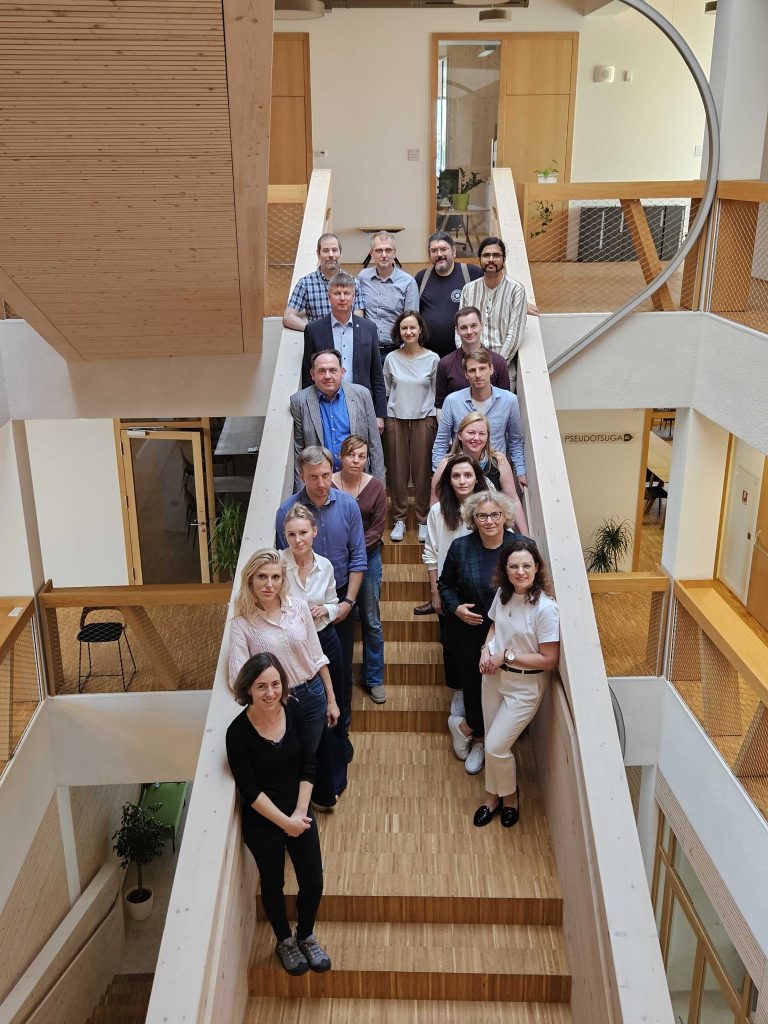
October 22, 2024


Sonja Jantar; Project management, support on project proposal preparation, support on legal and financial aspects of research projects
I grew up in Zagreb, Croatia, where I finished all my studies, up to the PhD. Now I live in Umag, Croatia.
I studied molecular biology. I was very interested to find out how biology works, how do plants grow and basically, how do living organisms operate in different circumstances. It was not easy for me to choose what to study, because I was also very interested in languages. In the end my curiosity to explore the unknown prevailed.
My work consists of doing all the administrative and financial things that are part of the preparation of a research project proposal and the project lifecycle. Also, one of my roles is to advise researchers on administrative and financial aspects of funding programmes, to help them develop their research idea into a project.
In a typical day I would first check my priorities, then start the most pressing task, for instance preparing a part of a financial report for a project, or a part of some project application. This quiet work is interrupted by meetings. Sometimes the quiet time is longer, and at other times the meetings can take the whole day.
I am super excited about supporting excellence by doing what I love.
As I am just starting at InnoRenew, the biggest challenge is to find the best way to organise work processes so that project management becomes more efficient.
I am fascinated by the sequencing of the neanderthal genome by prof. Svante Pääbo, a Swedish geneticist. It took years to achieve the first sequencing of the modern human genome, and now, not only can the human genome be sequenced in a day, but the ancient genomes can be deciphered to give us information on the way ancient species of humans lived and if and how much they interacted with homo sapiens. Amazing!
There is a book called “Vrnitev boginje” (Return of the goddess) by A. P. Kezele, which I find beautiful and lifechanging. Every time I read it, I find some new questions I should be asking about the world around me.
Lately I listened to a Yale course on the making of modern Ukraine, by Timothy Snyder, and also a number of lectures by prof. Yuval Noah Harrari on different subjects, from AI to all of human history.
My very first impression of Slovenia was on a skiing trip with my parents when I was a child. It was beautiful, and I remember being surprised that I couldn’t understand the language.
I like that people in Slovenia are open to new ideas and of course, I love the amazing nature! I do not miss my homeland, as I travel from Croatia to work most days of the week.
I must say I like Izola the most. It has a beautiful old part of town, it has nice views of the Italian coast, and a very nice residential area with enough space between buildings. I especially like the horticultural design of roundabouts.
Working with people who are passionate about what they do.
Some years ago, a question was posed to me which changed the way I look on life. The question was: What would you do if you didn’t have to work? Thinking about this made me realize a lot of things, and most importantly, made me change things in my life so that I can say that I now truly look forward to Mondays.
Wood is for me both a part of nature and a very important part of home. In nature, I am most at home in forests, where I never feel alone. This feeling is for me somehow a part of all beautifully crafted wooden objects.